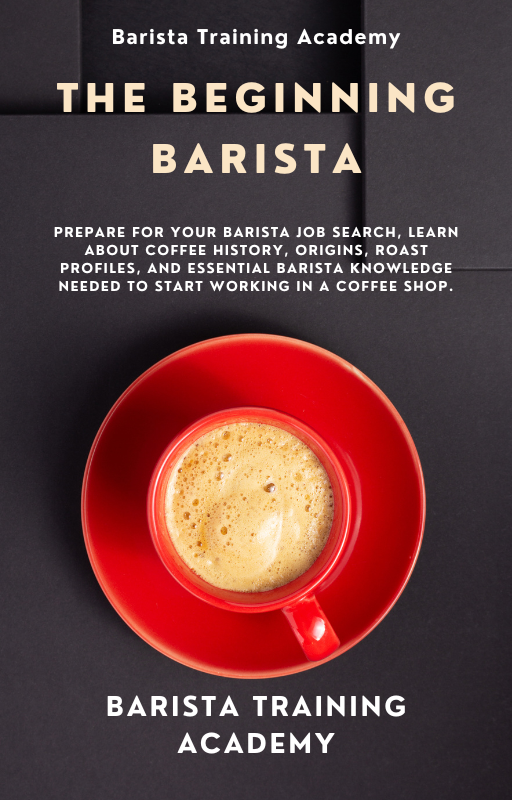Be a barista Before Retirement.
Not Ready for Retirement: Be a Barista
Many people work after retirement because they seek financial stability and can’t imagine staying home and not working! It doesn't matter how old we are. We often desire to be active, contribute to society, and add value around us.
Sometimes, it's also just a necessity to continue working. Financial situations are always in flux. This is where choosing to be a barista might be a good option for you to fall back on.
If you are thinking about postponing retirement, you are not alone.
National Institute on the Retirement Security states about 70 percent of Americans say the average employee can’t save enough on his or her own to guarantee a secure retirement. About 65 percent of them say that they will most probably have to work after reaching the retirement age to save enough money to retire finally.
This is the financial reality we are living in today. To adapt to this new reality, we need to plan to be ready for retirement. By networking, acquiring new skills, being open-minded today, you lay the ground for your financial security in the future. Besides that, any after-retirement job keeps you mentally active and engaged, which means better memory, good emotions, and higher self-esteem.
Main Reasons to Work After Retirement
There are plenty of reasons for us not to retire after we decide to finish our career with the main job:
Financial Reasons
- We need the money. As we discussed at the beginning of this article, you should be ready that your retirement savings might not be ready to cover your bills, rent, utilities, emergency savings, and other needs. However, according to USNews.com, most retirees who currently work don’t name their salary the main reason for staying employed. But what if your savings loses value or another financial crisis strikes again? What if your loved one passes away and your financial situation radically changes? We always need to be alert and think of our financial stability.
Benefits
- We need health insurance before (and after) the age of 65. One of the greatest benefits of working after retirement is that some companies (though not all) cover their employees’ health insurance. We recommend that when searching for an after-retirement job, you should look for jobs with health benefits.
Lifestyle
- We are not ready to throw in the financial towel. After retirement, we finally have time for ourselves: we want to travel, develop our own business, start a new hobby, move to a new house, or purchase something we always dreamt about. If you have your health insurance covered and your rent paid, you still need money for yourself. This is where a part-time job comes in to help you afford your next trip of purchase.
- We want to stay active. Staying active means living longer, according to a study outlined in the Harvard University newsletter. It suggests that working after retirement age lowers the risk of dying during the next 18 years up to 11%. Moreover, people who worked after 65 are three times more likely to report being in good health and about half as likely to have serious health problems, such as cancer or heart disease.
Social Networking
- We crave social interaction. After retirement, we may feel cut off from the big world. No more business lunches, meetings with partners, consulting customers… This might lead to depression and boredom. The only way to avoid it is by being socially engaged and active at your port-retirement job.
Continual Learning
- We desire to learn new things. Keeping your mind active is always good for preventing memory loss, Alzheimer’s disease, or dementia. Learning something gives us a sense of purpose and value, especially if you can apply your new knowledge to help people.
Adding Value
- We want to be valuable to the community. Retirement often leads to the loss of the purpose or identity you associate yourself with. If you decide to continue working after retirement age – no matter what you do – you devote yourself to the people in your community. Even working in a non-profit organization brings a sense of pride and dignity in what you do.

Do Not Be Intimidated By Age, Skill, or Anything Else!
You’ve lived and have stories to tell. You’ve raised kids. You struggled through the ups and downs of life. You made career changes before. So, making Americanos or Vanilla lattes might be the easiest – and at the same time the most fun – thing you do.
Look at this Starbucks coffee shop in Mexico City, where all employees are over 50 years old. It’s amazing to see that older people are so happy and satisfied with their job and their quality of life. They say that a barista job keeps their mind agile, their personality has improved – they became more calm, open-minded, and chatty. The barista job is very stimulating because of the constant contact with other people. You don’t notice how your 7-hour shift passes by because you are always busy.
The example of this coffee shop is truly inspiring. That is why you shouldn’t be intimidated by being a barista at any age or place in your life.
Reasons you should not be intimidated to be a barista
- Making espresso-based drinks is not rocket science. With the right barista training, you can learn and master the art of being a barista at any age. Everything comes with practice. No matter how old a barista is, he or she will spend a few weeks learning how to dial in, extract, and pour a perfect coffee shot. Steaming milk and latte art is also a skill that can be mastered. Moreover, you don’t need to have impeccable latte art skills to be a great barista.
- A barista job offers a flexible schedule. If you feel like it’s hard for you to work full-time or have other hobbies and obligations, you can negotiate part-time employment in a coffee shop. You can work one day full time and then have 2 days off. The employment options are countless.
- A barista job pays well, which can be a great addition to your family budget. You should know that a barista salary is made of the minimum wage in your county plus tips that can be very generous. Depending on how much time you work or your financial goals, you can earn quite well.
- A barista job is a social job that has the potential to improve your self-worth and sense of personal value. Probably, working in a local coffee shop is your best contribution to your community or neighborhood. You are connected to other people, help them, chat with them, and listen to them… This is probably the best thing you can do for yourself and the people around you.
Why you’d make a great barista if you are of “retirement age”
The coffee industry is the most open-minded business with the least level of discrimination or inequality. If you’ve always been a coffee fan and like to be helpful, you have a very high chances of being a great barista.
You love coffee. For any barista, the passion for coffee is the many reasons to start a job in coffee. It’s hard to work with a product that you don’t like or don’t feel connected to. That’s why your love for coffee is the main drive of your motivation. Plus, your potential employer will be looking at how eager you are to learn about coffee every day. If you don’t drink coffee, you can still be a good barista, but ask yourself if you will feel delighted with this job.
You want to contribute to society. If money is not your primary reason to work as a barista, then it’s your personal satisfaction and self-esteem. You feel the inner need to help and serve others; you like talking to people and knowing how to deal with grumpy customers. Does it sound like you? Then you will make a great barista!
You have experience working with customers. Your previous experience with customers will be your greatest asset if you decide to be a barista because you can find a personal approach to every customer: you feel their mood, or you can tell what they want. If you meet a rude customer, you probably won’t lose your temper or burst into tears because you’ve seen it all before.
Reasons why coffee shop owners should hire retirees as baristas
It’s not a secret that older people have more maturity than younger people. Older people are less emotional; they can better manage their emotions and affections. Most probably, older people won’t bring their life dramas to their workplace.
Better time-management skills are always associated with maturity, which means an older barista will be less prone to come late to work or neglect the posted schedule.
Older baristas are often good communicators because they have more awareness. They really engage in the process of communication with customers, not just on a shallow level. They show more empathy and compassion.
Older baristas show more tenacity at work. If something doesn’t work out, they will ambitiously pursue the goal of mastering a skill, while young people might quickly lose interest and get frustrated or bored.
What about discrimination?
Workplace age-related discrimination is illegal. However, there are certain requirements for every job that you need to be able to perform. As a barista, you may have to lift a certain amount of weight to perform a job. Can you do it? If yes, then you are welcome to be a barista. You can also negotiate your need with your employees. For example, you should be given light accommodations to perform your duties. Or you might need a special stress-free mat to stand on while you are working.
Online Barista Training Can Help You Avoid Retirement
With the help of our Barista Training Program, you can learn to be a barista at any age. Our Barista Training Guide was specially designed for starting baristas who never worked with coffee before. We break down the subjects of coffee history, coffee roasting, grinding, tamping, espresso extraction, milk steaming, espresso-drinks building, and many more to make them easier to comprehend.

Brought to you by Barista Training Academy, “The Beginning Barista,” Your Ultimate Prep Guide to Getting Your First Job as a Barista” is an ultimate resource that is available online. It is affordable for anybody who is looking to start a career in the coffee industry. For more information, visit our blog.
